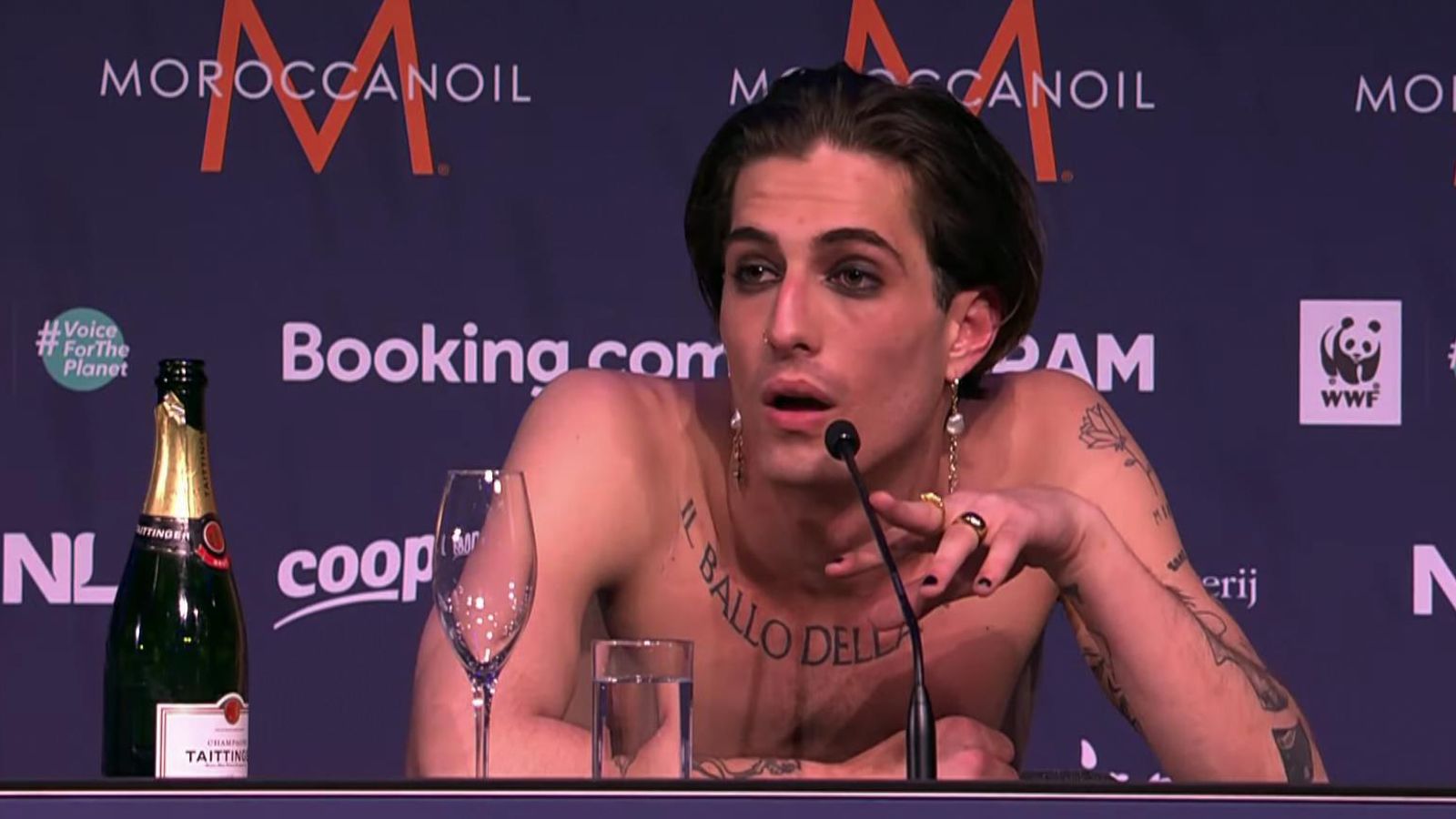The lead singer of Eurovision winners Maneskin did not take drugs during the grand final, an inquiry has concluded.
The European Broadcasting Union (EBU) said in a statement Damiano David, the frontman of the Italian rock group, had returned a negative result in a drugs test since the event on Saturday.
The band, who won with the song Zitti E Buoni, had “strongly refuted the allegations of drug use” that emerged on social media after David appeared to bend over a table in the contest’s green room while on camera.
A statement from the EBU said: “Following allegations of drug use in the green room of the Eurovision Song Contest Grand Final on Saturday 22 May, the European Broadcasting Union (EBU), as requested by the Italian delegation, has conducted a thorough review of the facts, including checking all available footage.
Please use Chrome browser for a more accessible video player
“A drug test was also voluntarily undertaken earlier today by the lead singer of the band Maneskin which has returned a negative result seen by the EBU.
“No drug use took place in the green room and we consider the matter closed.”
The EBU said it was “alarmed inaccurate speculation leading to fake news has overshadowed the spirit and the outcome of the event and unfairly affected the band”.
During a news conference following Maneskin’s win, David denied he used drugs and said he bent over because another band member had broken a glass at their feet.
The EBU subsequently said band members had asked that David be drug tested to refute the speculation.
Meanwhile, the UK suffered a brutal defeat as James Newman and his song Embers was the only entry to score zero points from the jury and the public vote, coming bottom on the leader board.
Newman, the brother of singer John Newman, thanked fans on Monday and said he wanted to “focus on the positives” of his time in the competition, which saw more than seven million people in the UK tune in to watch the Saturday night finale.
He wrote on Instagram: “The thing about writing songs is that there is no guarantee that a song you think will connect with people will connect with an audience.”
International Trade Secretary Liz Truss rubbished the idea the UK’s nil points was a “post-Brexit snub” and suggested the BBC should not choose future entrants.
Ms Truss told LBC’s Nick Ferrari: “I think there’s a fundamental problem with the way that we are choosing our performances and singers for the Eurovision Song Contest, because I don’t think it’s a post-Brexit snub.
“I think we need to have more competition to get the right entrant, I think they need to be more tested with the public.
“I’m here today at LBC responding to questions from listeners, that’s the kind of testing that we need our song contest entrant to go through.
“So maybe it should be LBC that’s running it, not the BBC.”






















